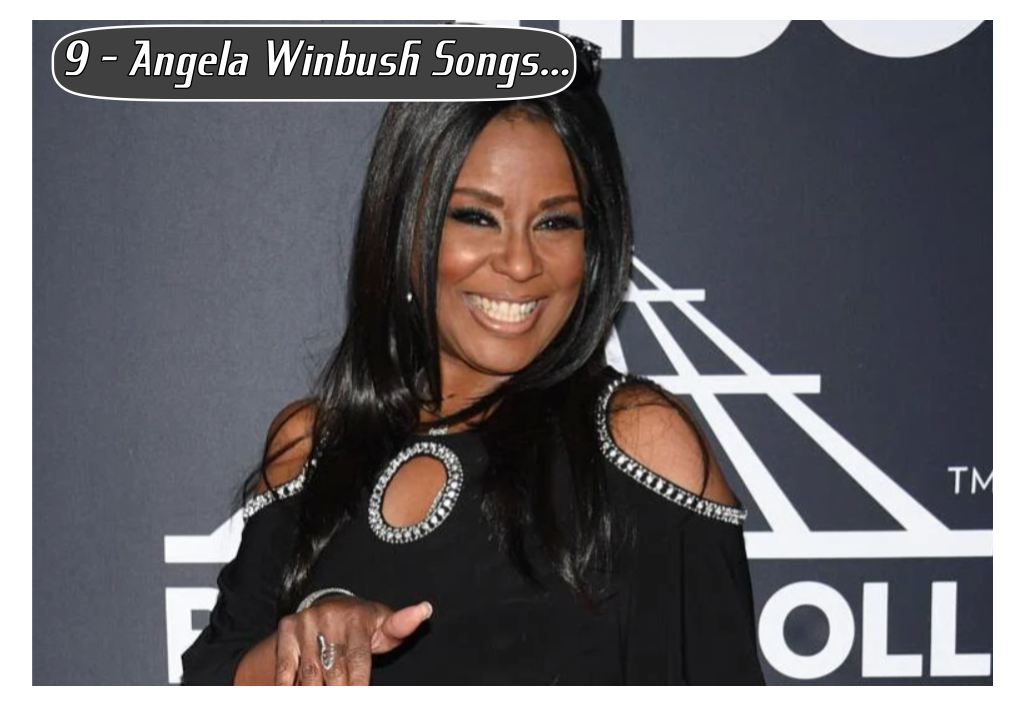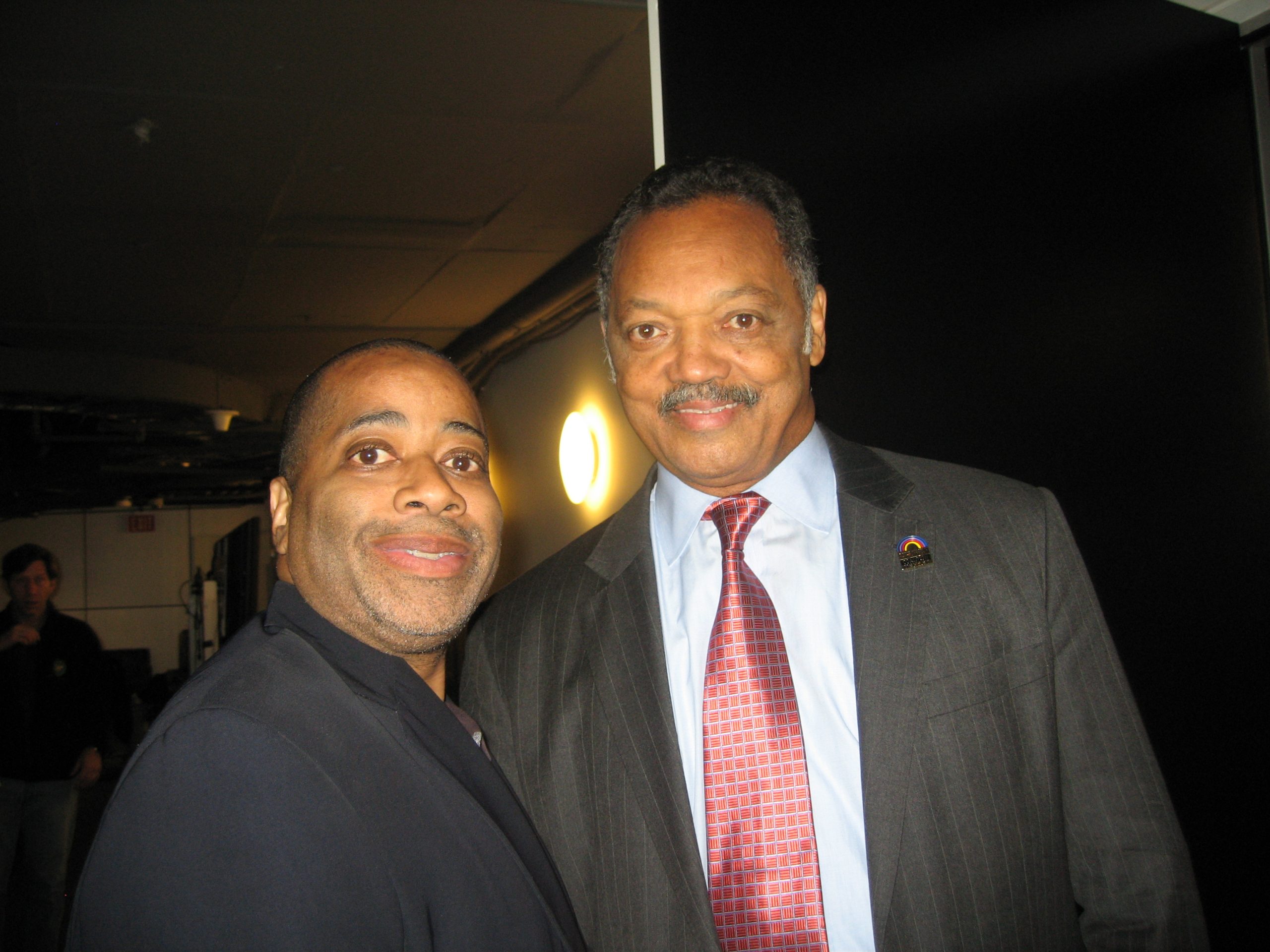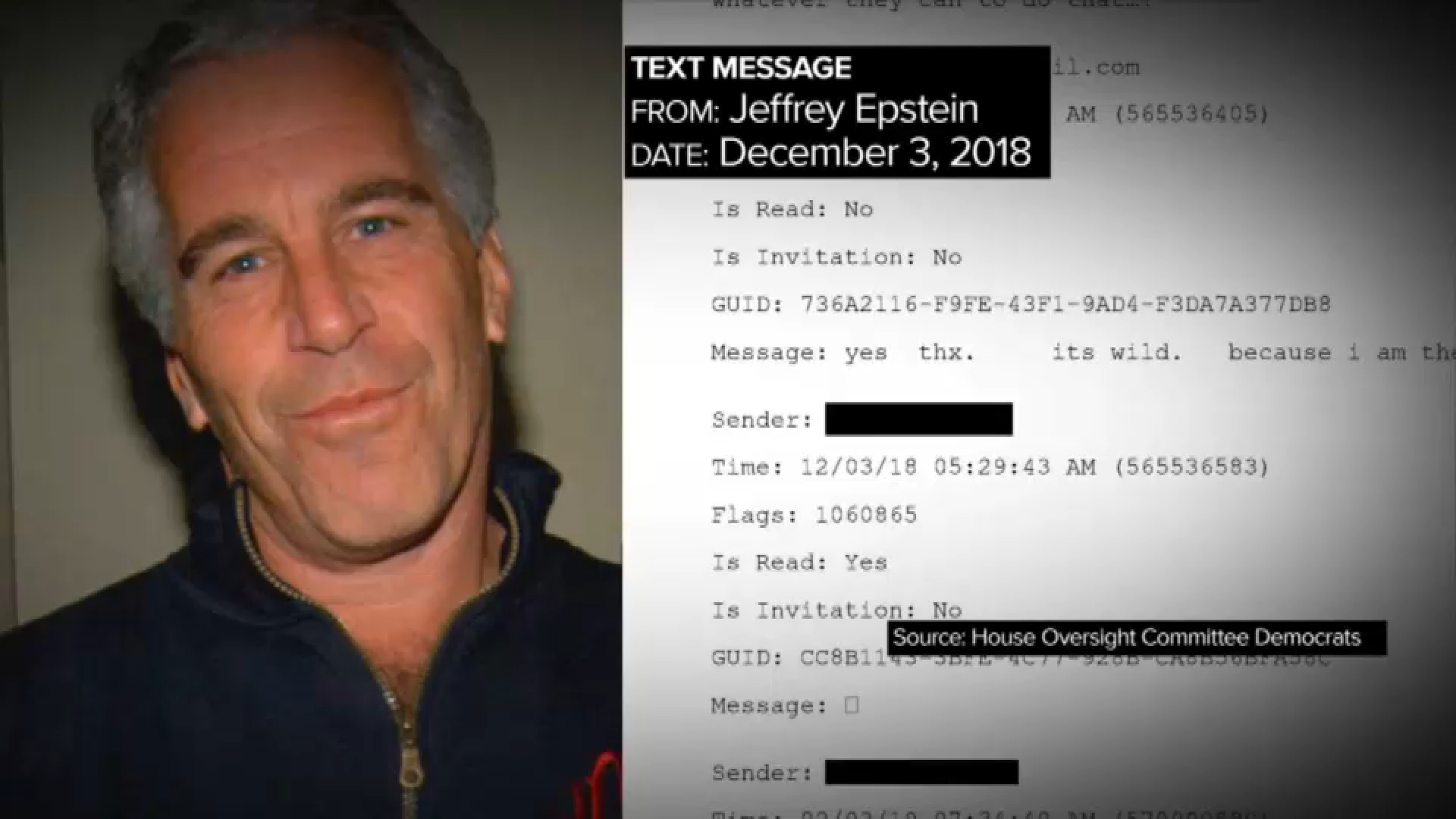(ThyBlackMan.com) Angela Winbush has always felt like one of those artists you discover at just the right time—when you’re looking for truth in your music, something that doesn’t just sound good but means something. Whether you found her through a dusty vinyl record, a radio slow jam, or by scrolling deep into a soul playlist, there’s no mistaking that voice or her signature blend of elegance and power.
She never needed to scream for attention. Angela let her voice glide, her harmonies soothe, and her lyrics dig deep. She gave us vulnerability wrapped in confidence—and whether solo or alongside René Moore, she always made sure the music came from a real place.
These nine songs are just a glimpse into the brilliance of her catalog. They showcase her depth as a vocalist, her genius as a songwriter, and her underrated influence on modern R&B. If you’re new to Angela Winbush or just revisiting the music that raised you, this is a beautiful place to start.

1. “Angel”
“Angel” is a career-defining ballad that captures the essence of Angela Winbush’s artistry: a balance of strength and softness, divinity and desire. It’s a track that feels like it was written from the soul outward, and the fact that she not only sang it but also wrote and produced it cements her place among the greats—not just as a performer, but as a musical architect.
The opening piano chords are minimalist, almost sacred. There’s no rush, no pressure—just space for her voice to arrive like a gentle breeze. And when it does, she doesn’t just sing—she ministers. Her falsetto is so delicate it feels like it might vanish into the air, but instead it wraps around the listener like silk. The harmonies are perfectly layered, supporting the lead without ever overpowering it.
Lyrically, “Angel” hits that rare sweet spot between personal and universal. She’s not just singing to a partner—she’s singing to the idea of love itself. There’s no bitterness, no sarcasm, just reverence. And that’s what makes the song endure. It doesn’t chase trends or borrow from gimmicks. It exists in its own emotional space.
Even decades later, “Angel” continues to show up in playlists for weddings, memorials, or nights of private reflection. It’s more than a slow jam—it’s a spiritual experience that reveals just how deep R&B can go when heart meets craft.
2. “You Had a Good Girl”
“You Had a Good Girl” is not just a standout track—it’s a full-on declaration. Angela Winbush doesn’t mourn her heartbreak here; she interrogates it. And the result is a song that moves with the rhythm of accountability and the bite of truth. It’s the kind of track you play after you’ve cried your last tear and decided you’re never shrinking again.
The production is bold without being brash. The bassline moves like a steady march, the guitars slash in and out with purpose, and the drums snap like a confrontation. Angela’s voice never wavers—it sits confidently in the mix, commanding attention with each word. She’s not trying to sound heartbroken. She’s explaining what someone lost.
What makes the song brilliant is how Angela refuses melodrama. This isn’t the sound of a woman begging to be understood—it’s the sound of a woman who was everything, and whose absence is now a punishment in itself. The lyric “You had a good girl, and you let her go” isn’t a lament—it’s a mirror.
In today’s culture of empowerment anthems and reclaiming self-worth, this track remains incredibly relevant. It could easily be sampled or covered by a modern artist like Jazmine Sullivan or Ari Lennox. “You Had a Good Girl” reminds us that sometimes the most powerful way to sing about pain is through clarity, not chaos.
3. “Run to Me”
“Run to Me” is a gem in Angela’s catalog that showcases her ability to turn vulnerability into something elegant, not exposed. It’s not as well-known as “Angel,” but it holds its own as one of her most emotionally layered recordings. The song doesn’t cry out for love—it gently opens the door and lights a candle in the window.
There’s a patience to the rhythm here, a quiet insistence that draws you in like a whispered conversation. The guitar licks are subtle, almost jazzy, while the synths wash over the track like waves hitting soft sand. Angela’s voice floats above it all, never pressed, never straining. It’s an invitation, not a demand.
Her phrasing is especially masterful on this song. She elongates certain syllables just enough to make the listener lean in, like she’s revealing a secret. The background harmonies echo her lines, acting as the supportive voice in your head that tells you it’s safe to trust again.
For modern listeners who love moody, late-night R&B, “Run to Me” is right on time. Its emotional intelligence sets it apart—it doesn’t just romanticize love, it reflects the safety that real love brings. It’s a musical hug for those who’ve been through the chaos and are finally ready to exhale.
4. “Hello Beloved”
“Hello Beloved” is arguably one of Angela Winbush’s most unique offerings. It stands as a sonic bridge between earthly romance and divine connection. Few artists can blend the language of gospel with the softness of R&B in a way that feels natural, but Angela does just that. This song isn’t about lust—it’s about longing that’s finally found a home.
The instrumentation leans heavy into soul-gospel textures. Warm organ swells and sustained chords provide a foundation that feels both spiritual and intimate. There’s a choir-like feel in the harmonies, but it’s never overpowering. Instead, it supports Angela’s lead like a congregation echoing a preacher’s message.
Her voice here is reverent. Every note is approached with care. She sings “Hello Beloved” not like someone who’s simply glad to see her partner again, but like someone welcoming the return of a sacred connection. It’s that fusion of passion and purity that makes the song linger long after it ends.
It’s also a quietly radical love song. Rather than focusing on the physical or the transactional, Angela emphasizes emotional and spiritual reconnection. In a world that often rushes through romance or reduces it to surface-level desire, “Hello Beloved” invites the listener to pause and appreciate the holiness of real love.
This track belongs on playlists designed for reflection—whether it’s for couples healing, friends reconnecting, or just those yearning for a deeper kind of affection. It’s not just music—it’s medicine.
5. “C’est Toi (It’s You)”
“C’est Toi (It’s You)” captures that rare moment when style and sincerity collide to make something truly timeless. René & Angela were already known for their seamless blend of funk, soul, and quiet storm elements, but this track introduced a sophisticated, European flair to their catalog. From the moment that sparkling synth line begins, the song pulls you into a dreamscape of vintage romance.
Angela Winbush leans into her sultry vocal tone here, delivering each lyric with a knowing smile. Her use of French in the title and chorus gives the track an aura of mystique, adding just enough continental allure without feeling contrived. She’s not just singing affection—she’s embodying the grace and confidence of a woman in full control of her heart.
The production is peak early ’80s—rhythmic handclaps, cascading keyboard melodies, funky basslines—but it’s never overwhelming. Everything is polished but playful, with little sonic surprises sprinkled throughout. The backing vocals from René Moore weave in and out with precision, creating that rich, dynamic harmony the duo became known for.
“C’est Toi” is still a vibe. Play it today in a candlelit room or while driving through city lights, and it fits just as easily as anything on a modern chill playlist. It’s music that makes you feel attractive, confident, and a little adventurous—a rare mix that only someone like Angela Winbush could deliver with such finesse.
6. “Treat U Rite”
“Treat U Rite” arrived during a transitional period in R&B, where artists were finding ways to evolve with the emerging sounds of hip-hop soul without losing their identity. Angela handled this shift like the seasoned pro she is. With its sleek production, punchy rhythm, and mature lyrics, “Treat U Rite” is a masterclass in grown-woman vulnerability wrapped in style.
This isn’t the sugary kind of R&B that gets lost in infatuation. Angela’s voice here is textured—slightly rougher than in her earlier ballads—but that edge gives the song its emotional heft. She sounds like someone who’s been through the highs and lows and is now drawing a line with quiet authority. She doesn’t beg for love—she outlines what love should be.
The beat has that unmistakable ’90s swing—tight snares, layered keys, and a subtle groove that moves without dominating. It’s smooth without being sleepy, assertive without being aggressive. Angela’s harmonies glide through the mix like silk on leather—soft but unmissable.
Lyrically, this track is a blueprint for mutual respect. “If you treat me right, I’ll treat you right”—it’s a simple message, but in Angela’s hands, it sounds like scripture. Today, in a culture that still struggles with emotional availability and respect in relationships, “Treat U Rite” feels just as needed as ever.
7. “Your Smile”
If there’s one René & Angela song that can melt even the toughest heart, it’s “Your Smile.” Released in 1986, this slow-burning ballad became a cornerstone of the quiet storm genre and one of the duo’s most beloved hits. What sets it apart isn’t just the softness of the sound—it’s the sincerity that radiates from every lyric, every chord, and every breath Angela Winbush takes. “Your Smile” is more than just a love song—it’s a sonic embrace.
Angela’s lead vocals are exquisite in their restraint. She doesn’t reach for vocal acrobatics; she simply leans into the melody, singing each line like a private confession. Her tone is almost lullaby-soft, yet there’s an unmistakable emotional presence—like someone singing directly to you, in your living room, or in your heart. It’s the kind of performance that proves power doesn’t always mean volume. Sometimes it’s in the stillness where the emotion truly lives.
The instrumentation is velvet-smooth. The electric piano glistens like moonlight on water, the synth strings wrap around the melody like a warm shawl, and the gentle percussion pulses like a slow, steady heartbeat. Everything is understated, but meticulously crafted. It’s no surprise this track became a staple on late-night R&B radio—it’s tailor-made for quiet moments, for hearts wide open and ears ready to listen.
René’s harmonies play a subtle but vital role. He doesn’t crowd the space—he colors it. His vocal responses and soft echoes to Angela’s lead create a sense of romantic dialogue, as if the two are locked in a tender, unspoken conversation. That chemistry is what gave René & Angela their edge as a duo: they didn’t just sing to each other, they sang with each other.
Today, “Your Smile” still holds its magic. Whether it’s playing during a slow dance, on a wedding playlist, or during a solitary evening drive, it evokes that rare emotional clarity that so many modern songs miss. It’s about the power of presence, the sweetness of small gestures, and the beauty of simply loving someone for who they are. In a fast-paced world addicted to spectacle, “Your Smile” reminds us that sometimes all it takes is one look, one smile, and one perfectly timed song to say everything that matters.
8. “Inner City Blues (Make Me Wanna Holler)”
When Angela Winbush decided to cover Marvin Gaye’s haunting “Inner City Blues,” she stepped into sacred territory—and delivered a rendition that earns its place beside the original. She doesn’t mimic Marvin’s pain; she reinterprets it through her own lens, giving the song a distinctly female and introspective voice that adds new dimensions to its social commentary.
Angela’s vocal performance is aching and measured. She sings like a woman who’s seen it all—the violence, the poverty, the systemic neglect—and who now stands firm in her truth. There’s a quiet fire in her delivery, especially in the way she stretches out the word “holler,” as if the exhaustion of generations rests in that one phrase.
The arrangement honors the original’s structure—those unmistakable descending basslines, the hypnotic rhythm, the simmering groove—but modernizes it just enough with ‘90s-era production polish. The slight tweaks give it a crispness that brings Marvin’s lament into the contemporary era without stripping it of its emotional weight.
What makes Angela’s version essential listening today is its eerie relevance. The song’s themes of urban decay, police brutality, and economic disparity are still painfully present. But hearing it through Angela’s voice—warm, grounded, resilient—reminds us that the blues are not just history; they’re ongoing. And her voice? It doesn’t just echo Marvin’s outrage—it amplifies it with feminine grace and unshakable dignity.
9. “I’ll Be Good”
We close with one of the biggest and most enduring hits from René & Angela: “I’ll Be Good.” Released in 1985, the song was a chart-climber that quickly became a defining moment for the duo—and especially for Angela Winbush’s presence in R&B. With its pulsing groove and silky vocal layers, it remains a go-to track for retro nights, nostalgic playlists, and anyone craving that infectious ’80s magic.
From the very first beat, the song commands movement. The synth-driven riff is crisp and kinetic, setting a dance-ready foundation that doesn’t let up. Underneath that groove, though, lies a surprisingly sincere message of growth and accountability. The lyrics come from someone who’s made mistakes and is ready—truly ready—to do better. That kind of emotional honesty, wrapped in a catchy, uptempo shell, is what gives “I’ll Be Good” its staying power.
Angela’s lead vocals are smooth yet assured, toeing the line between sensuality and self-realization. She’s not begging or apologizing. She’s owning her evolution. It’s a vocal performance that radiates maturity and a kind of joyful promise: she’s not returning to love with baggage, but with clarity. René Moore’s backing vocals are the perfect complement—warm, conversational, and never overshadowing her delivery.
The production feels as fresh now as it did in 1985. There’s a perfect blend of analog funk and polished synth work, and the bassline grooves with a buoyant confidence that keeps the song in constant rotation at roller rinks, R&B sets, and club throwbacks. Even the vocal mix—so balanced, so clean—reminds you how well-crafted pop-funk could be when done with purpose.
“I’ll Be Good” isn’t just a dance track—it’s a sonic promise. A statement about redemption, willingness, and emotional evolution. It celebrates personal accountability without ever feeling heavy. It’s a track you can jam to, vibe with, or even use as a backdrop for those moments when you’re ready to step into a better version of yourself.
Nearly 40 years later, the song still radiates charm and sincerity. It’s fun, it’s flirty, and it’s rooted in truth. That’s the genius of Angela Winbush—she gives you rhythm you can move to, wrapped around lyrics that mean something. “I’ll Be Good” is her reminder that love can grow when we own our part in the dance.
Listening to Angela Winbush today feels like reconnecting with someone who always told you the truth—even when it was wrapped in melody. Her music still feels intimate, still hits close to the heart, and still carries that rare mix of vulnerability and strength. She didn’t just sing about love—she offered perspective, healing, and grace through every note.
Whether it’s the spiritual softness of “Angel,” the empowered fire of “You Had a Good Girl,” or the dancefloor joy of “I’ll Be Good,” Angela left us songs that never go out of style. They grow with you. They speak differently depending on what you’re going through. That’s the mark of timeless music.
So don’t just check out these songs—live with them. Let them soundtrack your quiet mornings, your long drives, your healing moments. Angela Winbush gave us more than music—she gave us wisdom with a melody.
Staff Writer; Jamar Jackson

















Leave a Reply